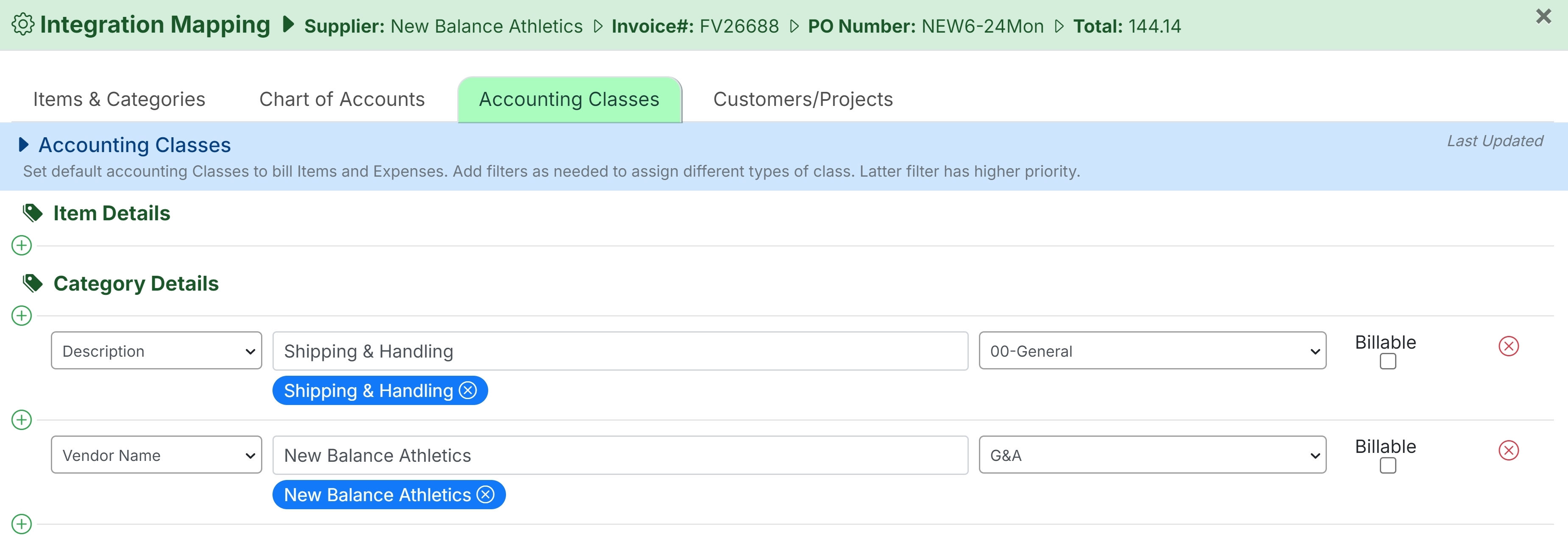In this article we will go over common errors when creating rules with Integrations Mapping. For a more in depth explanation of integration mapping, how to create rules, and examples, please click here.
Issues with integration mapping usually stem from one of two sources:
Unintentional Matches
Rule Order/Structure
Unintentional Matches
When matching rules, MakersHub checks if the search criteria are contained within the phrase, rather than requiring an exact match. In some cases, you may have an unintentional match to an existing rule.
Error: Adding a Space After the Comma
When adding multiple vendor names, they should be separated by commas. However, ensure there are no spaces after the last vendor. For example, if you enter “New Balance Athletics, Freeman Electric, ” the extra space after the comma acts as a wildcard, causing the system to match any vendor name with a space. To avoid this, make sure there are no unnecessary spaces, as in “New Balance Athletics, Freeman Electric”.

Error: Including “,INC” or “,LLC” in the Vendor Name
When using vendor names that include “, Inc”, it's important to remember that the system will interpret the comma as the start of a new name. For example, if you copy “Pittsburgh Systems, Inc” directly into the rules, the system will search for both “Pittsburgh Systems” and “Inc”. To resolve this, simply omit “Inc”—MakersHub will still correctly identify the vendor as it searches that the phrase is contained in the vendor name.

Rule Order/Placement
In MakersHub, rules are read in an “If, unless” format, meaning each subsequent rule can override the one above it. Incorrect rule placement can cause multiple matches and misassign rules.
Multiple Matches
In the example below, "New Balance Athletics" is listed in both rules. MakersHub will find the first match and assign it to “01.1 Building Permits”, but it will be immediately overridden by the rule underneath causing the vendor to inherit the "02.10 Demo" item because it is lower in the list of rules.

Overriding Rules
In this example, we want “Shipping and Handling” to be assigned to the “00-General” class. However, because there is a rule with a higher priority for the vendor “New Balance Athletics,” the “G&A” class takes precedence. As a best practice, start with broader conditions, such as the vendor name, and refine with more specific details like the item description.
